May 22, 2025 | 08:47 GMT +7
May 22, 2025 | 08:47 GMT +7
Hotline: 0913.378.918
May 22, 2025 | 08:47 GMT +7
Hotline: 0913.378.918
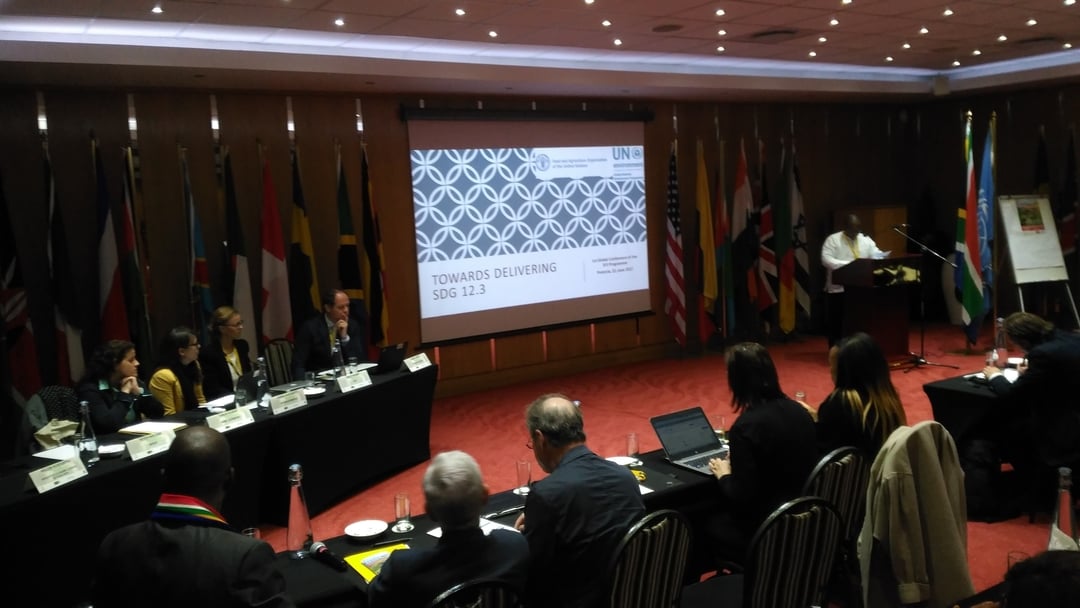
Representing the host country South Africa, Mr. Aubrey Masango made a speech at the conference. Photo: One Planet.
The Sustainable Food Systems (SFS) Programme held the first global conference on June 21-23, 2017 in Pretoria, South Africa, aiming to provide a platform for dialogue to strengthen collaborative initiatives, form new alliances, and empower organizations in their efforts to drive the change in the food system. The conference was organized by the Ministry of Trade, Industry and Competition of South Africa and attracted more than 150 participants from 28 countries.
Five central themes of the SFS Programme were introduced, in which the delegates agreed on a number of contents: Explore the complex relationship between food security, nutrition and sustainability; Develop multiple platforms to share existing experiences; Expand the SFS Programme network to include more stakeholders from Africa and Asia; Increase the number of countries that have strategies, policies and programs to reduce food loss and waste; Encourage locally-relevant innovations and leverage local experiences.
Along with the presentations and discussions in the symposiums, a common theme emerged, which was the necessity to move from words to actions, arouse political consciousness to ensure a better policy environment. This was seen as key to accelerating change in the food system.
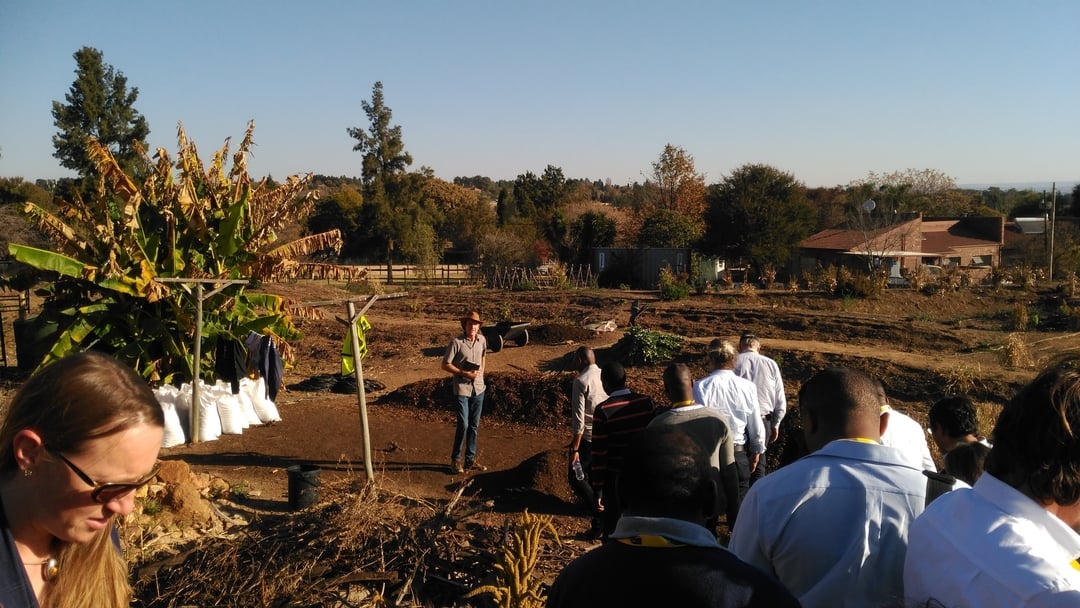
Delegates attending the first conference went on an experience trip to visit farms that practice sustainable production. Photo: One Planet.
On the last day of the conference, Mr. Bulelani Gratitude Magwanishe, Deputy Minister of Trade, Industry and Competition of South Africa, delivered an inspirational speech, reminding the participants of the famous quote of Hippocrates: "Let food be thy medicine and medicine be thy food".
Mr. Bernard Lehmann, Director General of the Federal Office for Agriculture of Switzerland, shared his experience of operating the food system as a multi-stakeholder knowledge system. This was also considered an initiative at the first conference.
The joint resolution was also approved by the participating members. The main content was to call on governments to provide an appropriate food policy environment, and admit that addressing the burden of malnutrition is a priority for changing unsustainable food systems.
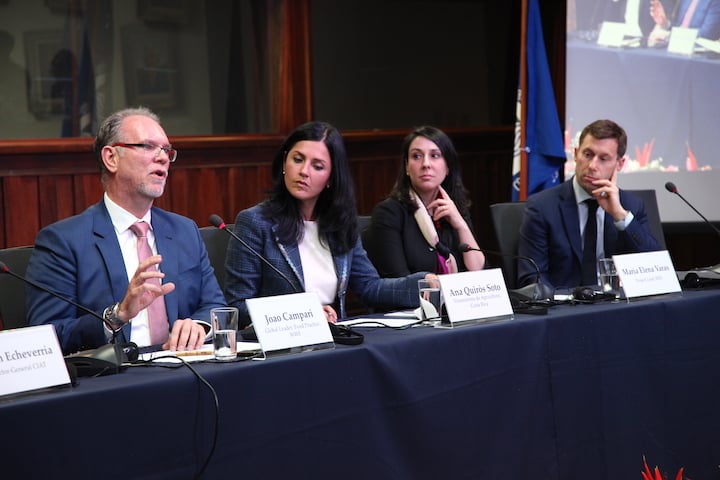
Ms. Ana Maria Quiros, Deputy Minister of Agriculture and Livestock Costa Rica at the second Global Conference of the Sustainable Food Systems Programme. Photo: One Planet.
The second Global Conference of the Sustainable Food Systems Programme took place from February 5 to February 7, 2019. The Ministry of Agriculture and Livestock of Costa Rica was chosen to host the conference in San Jose, which brought together more than 200 delegates.
The main outcome of the conference was the issuance of a joint communiqué, which included the following contents: Enhance the political implications of sustainable food systems; Develop cooperation in favor of a sustainable food system; Promote a food environment conducive to building a healthy diet; Enhance common vision and understanding in building trust and developing capacity, especially with the vulnerable group.
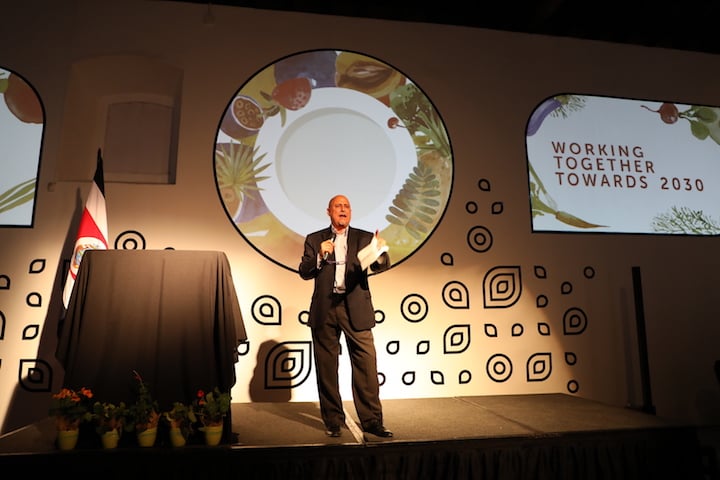
Mr. Alfredo Echevarria, the representative of the host country Costa Rica, spoke at the conference dinner. Photo: One Planet.
In particular, the delegates had an enthusiastic discussion about the project "Towards a common understanding of Sustainable Food System". This was to build a global common language that fostered an understanding of the challenges, goals and approaches surrounding the concept of sustainable food systems. The second action tool, "Food Systems Transformation Framework Collaboration", provided a new approach to policymaking and improved governance for sustainable food systems.
The conference encouraged participating organizations to make voluntary commitments to food system transformation. The most famous among them was the agreement between the Ministry of Environment and Energy and the Ministry of Agriculture and Livestock of Costa Rica to build institutions for the comprehensive, diverse development of farming systems through agroforestry practices.
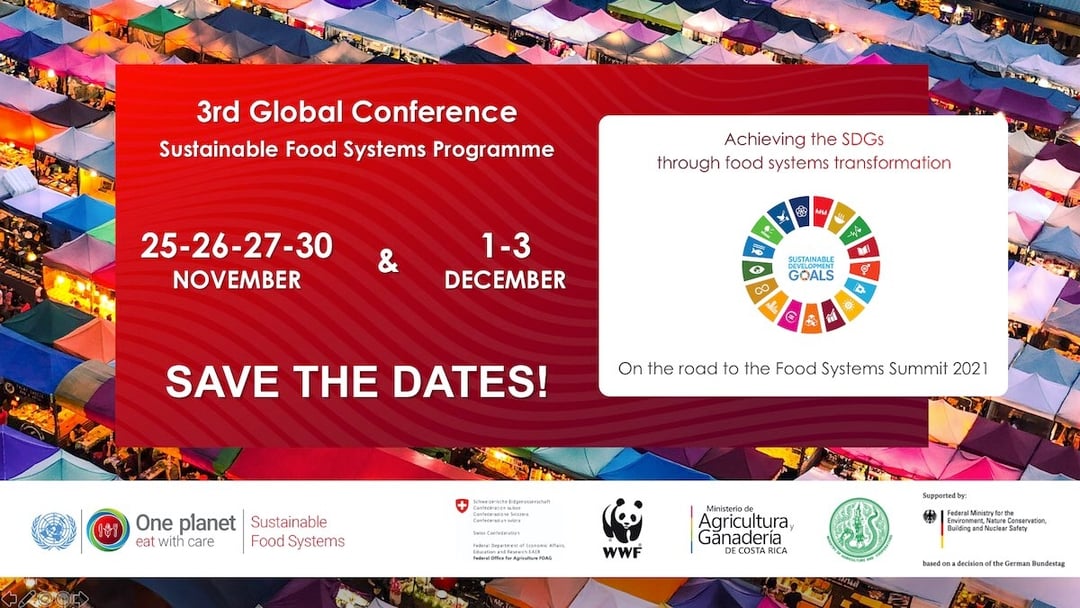
The third Global Conference of the Sustainable Food Systems Programme was held online due to the influence of the Covid-19 pandemic.
The third Global Conference of the Sustainable Food Systems Programme took place from November 25 to December 3, 2020. The conference, organized independently by the One Planet Network's Sustainable Food Systems (SFS) Program, set its aim towards the groundbreaking Food Systems Summit of the United Nations Secretary-General.
Despite having to be held online due to the Covid-19 pandemic, the third conference received the presence of many important international organizations such as the Food and Agriculture Organization of the United Nations (FAO), the World Health Organization (WHO), United Nations Environment Program (UNEP), International Fund for Agricultural Development (IFAD), Organization for Economic Cooperation and Development (OECD), World Wide Fund for Nature (WWF), and the International Panel of Experts on Sustainable Food Systems (IPES-Food).
Opinions at the conference were unanimous that the development of sustainable food systems is central to achieving all sustainable development goals (contribute to poverty alleviation, end hunger, achieve food security and improve nutrition, improve health and social welfare, promote sustainable livelihood, etc).
Mr. Christian Hofer, Director of the Federal Office for Agriculture of Switzerland (since December 1, 2019) cum co-leader of the One Planet Network’s Sustainable Food Systems Programme, said that the third conference focused on the catalytic role of food systems in implementing the 2030 Sustainable Development Agenda: “We will only be able to achieve the 17 goals of the 2030 Agenda if we jointly identify and implement bold solutions to transform the food system”. This mindset of action was also presented again at the closing session, referring to the results of the conference and discussing the "Stream of Action" food system.
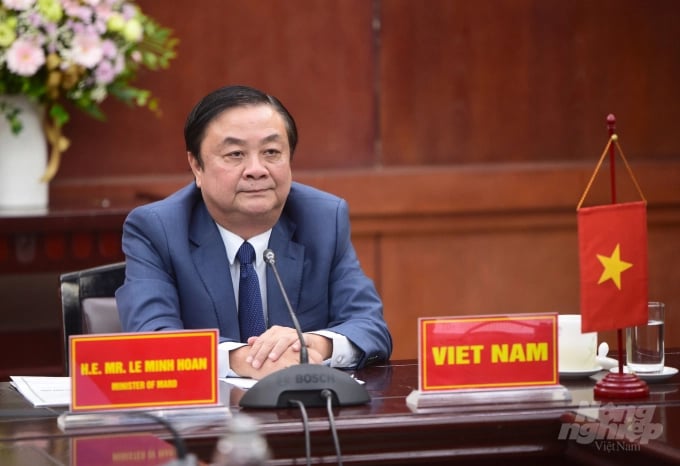
Minister Le Minh Hoan participated in the National Leadership Roundtable in July 2021, in order to prepare for the Food Systems Summit which took place in September 2021. Photo: Tung Dinh.
This event was followed by the first Global Food Systems Summit taking place on December 1, 2020. Here, a range of recommendations are identified: collaborative action mechanisms, challenges in the food system data, inclusive policy, investments in transformation initiatives, shopping communities and changes in consumer behavior.
Mr. Divine Njie, Deputy Director of the Food Systems and Food Safety Division of FAO, said, “Global food systems are now like a common thread, linking many sustainable development goals. Having less than 10 years to go until the 2030 Agenda, we need to increase the speed and scale of our actions".
The fourth Global Conference of the Sustainable Food Systems Programme is scheduled to be held from April 24 to 28 in Hanoi. The event receives attention from many ministers, deputy ministers, and heads of sectors from countries and international organizations.
The 4th global conference of the Sustainable Food Systems Programme will contribute to the 2023 Stocktaking Moment of the UN Food Systems Summit follow-up process by focusing on how food systems need to be transformed to overcome the multiple deeply rooted and interlinked crises of climate, biodiversity, conflict, energy, prices, hunger, malnutrition, and health to achieve the sustainable development goals (SDGs).
As the host country of the fourth conference, Vietnam will have the opportunity to share with other countries, United Nations organizations and international organizations about the efforts, results and the process of Vietnam's food system transformation.
The opening session is scheduled to be held on the morning of April 24, followed by thematic sessions. The SFS Program's closing meeting and the Multi-Stakeholder Advisory Committee (MAC) are scheduled to be held on the afternoon of April 27 and the morning of April 28.
For more information, please visit the links below:
https://www.oneplanetnetwork.org/programmes/sustainable-food-systems/4thconference
https://nongnghiepmoitruong.vn/hoi-nghi-toan-cau-he-thong-lttp-channel46/
Translated by Samuel Pham
![Reducing emissions from rice fields: [3] New values generated from carbon credit](https://t.ex-cdn.com/nongnghiepmoitruong.vn/608w/files/content/2025/05/19/dsc09613-144700_71-150957.jpg)
(VAN) In addition to helping safeguard the environment, the low-emission rice cultivation model also generates new opportunities for farmers by leveraging the carbon credit market.
![Ho Chi Minh city adapts to climate change: [1] Vulnerable in the whirlwind of development](https://t.ex-cdn.com/nongnghiepmoitruong.vn/608w/files/duyenht92/2025/05/19/3131-ngap-nongnghiep-163121.jpg)
(VAN) As the country's economic engine with a rapid urbanization rate, Ho Chi Minh city is facing increasingly serious consequences of climate change.
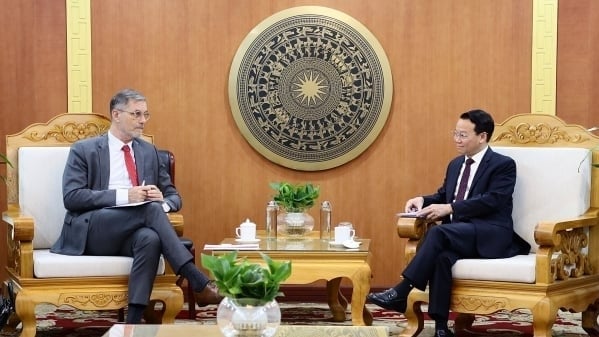
(VAN) On May 21, Minister of Agriculture and Environment Do Duc Duy worked with Mr. Olivier Brochet, Ambassador Extraordinary and Plenipotentiary of the French Republic to Vietnam.
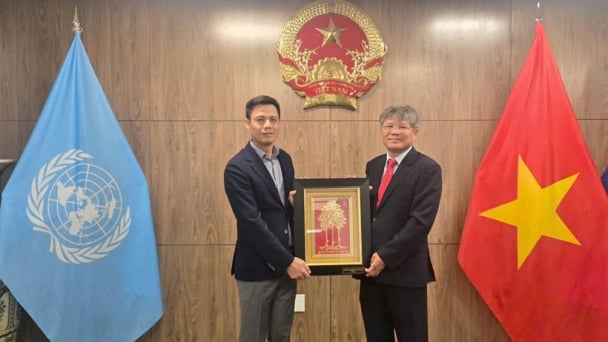
(VAN) VRG recently conducted a visit and working trip to the United States to demonstrate its efforts in redefining the role of rubber enterprises in the global value chain.

(VAN) In 2024, over 295 million people across 53 countries and territories faced acute hunger—an increase of almost 14 million people compared to 2023, while the number of people facing catastrophic levels of hunger reached a record high.

(VAN) World Environment Day 2025 (June 5) carries the theme 'Beat Plastic Pollution' continuing to emphasize the global urgency of addressing the plastic waste crisis.

(VAN) This was the assessment shared by experts at the workshop titled 'Assessing the Role and Potential of Low-Emission Rice Production Systems in Vietnam,' held on the morning of May 19.